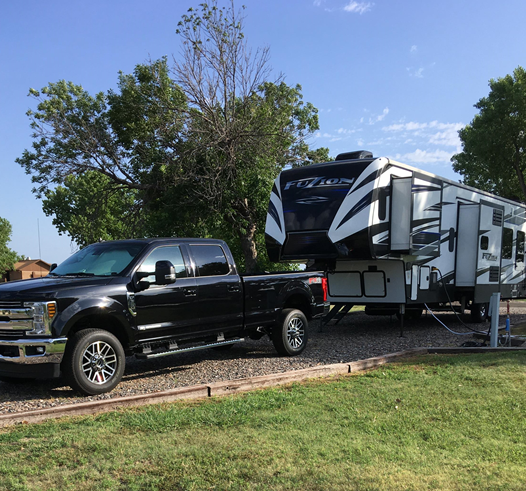Six Wastewater Treatment Best Practices for Campgrounds and Recreational Vehicle (RV) Parks
Posted on
In the past year we’ve seen a shift in the way many people are vacationing. There’s been a shift in demand for plane trips and hotel-based stays to motor homes and recreational vehicles (RVs). The increased interest in RV parks and campgrounds presents new challenges to property owners including wastewater treatment. Many of these parks are located well outside the boundaries of centralized sewer systems which means they require significant investment in decentralized treatment systems.
 Most decentralized systems are small, aerated biological treatment units with some combination of mechanical treatment components. However, considering that the quantity of visitors can vary greatly from season to season and even week to week, the likelihood of finding a one-size-fits-all solution is quite low. The following strategies can be used to overcome these anticipated flow and load variations of designing a wastewater treatment solution for a campground or RV park.
Most decentralized systems are small, aerated biological treatment units with some combination of mechanical treatment components. However, considering that the quantity of visitors can vary greatly from season to season and even week to week, the likelihood of finding a one-size-fits-all solution is quite low. The following strategies can be used to overcome these anticipated flow and load variations of designing a wastewater treatment solution for a campground or RV park.
- Wastewater produced from an RV is emulsified and the design will need to include solids management. If the system chosen utilizes primary settling, this unit operation will need to be large to allow time for solids settling.
- Utilize time dosing to spread flows throughout the day and week. RVs have holding tanks for both black and gray water that are periodically drained and flushed. This often takes place on Sunday as visitors pack up to leave after a weekend camping trip. This draining and flushing leads to surge flows and loads to the treatment system.
- Evaluate system loading based on mass-balance instead of hydraulic loading to ensure proper reactor sizing.
- Perform a sampling program to establish key influent wasteload parameters. Published values are fine if the estimates are conservative, but nothing is better than real-world data.
- Size systems with two or more parallel biological treatment trains to allow the operator (if the permit allows) to shut down one or more trains as flows and loads change. Size pumping and air delivery systems accordingly to accommodate lower flow conditions.
- Evaluate the choices available for treatment, and use technology proven to work on high strength wastewater that can handle seasonal shifts in flow and load. Systems utilizing attached growth microorganisms are known for their resilience in starvation conditions. This will help the system accommodate seasonal fluctuations and bring the system back to life in the spring when flows and loads increase.
We’ve had the opportunity of working with many campground and RV park owners to develop wastewater treatment systems. Here are a few examples of the solutions we have provided to these property owners.
ENVIRO-AIRE Package Treatment Plant Enables Expansion and Reduces Maintenance at Texas RV Park
Innovative Evapotranspiration System Reduces Nitrogen and BOD Challenges for New Mexico State Park
RV park septic tanks are essential to the efficient and responsible management of wastewater generated by park amenities and guest RVs. These underground systems play a critical role in treating sewage before it's released into the environment. Proper maintenance of RV park septic tanks is paramount to prevent environmental contamination, system failures, and operational disruptions. Regular inspections, pumping, and adherence to best practices are vital to ensure these systems operate optimally and have a long lifespan. By prioritizing campground and RV park septic tank care, owners can safeguard public health, protect the environment, and maintain a positive guest experience. Let us know how we can help provide a wastewater treatment solution for your campground or RV park.
Request a Quote for Your Campground or RV Park
Contact us if you have any questions about this blog post.
